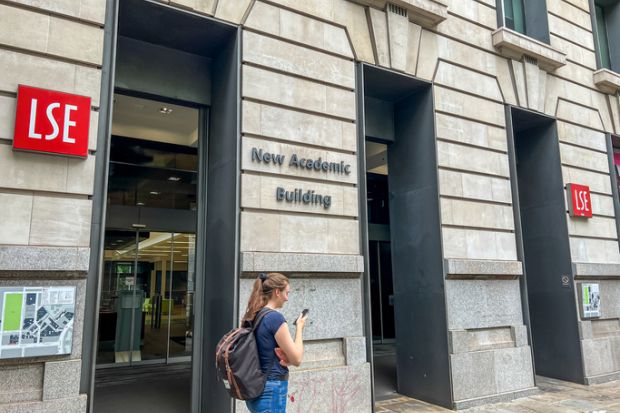A Palestinian refugee denied a visa to study a PhD in the UK has told of her frustration at having to put her career on hold as a result of “injustice” from the Home Office.
Amena El Ashkar was offered a full scholarship to undertake a doctorate in international relations at the London School of Economics (LSE), but her student visa was rejected by the UK government without any reason or explanation in December 2022. She had previously completed a master’s degree at SOAS University of London after being awarded a Chevening scholarship by the Foreign Office.
James Cleverley, the home secretary, has since issued an “unqualified apology” after a subsequent judicial review was mishandled, and a judge found the government’s action to have been “unlawful”.
While she waits for a new decision on her visa application, which is expected at the end of the month, Ms El Ashkar is working as a research assistant in Qatar on a temporary contract.
“I’ve been living in this situation for the past two years, and it’s beyond frustrating,” she told Times Higher Education.
“I’ve lost a lot of job opportunities while still waiting for an answer before getting a refusal, finally. So not getting an answer, not knowing why this is happening, not knowing if I’m going to get the chance to eventually go to get my PhD.
“The injustice and unfairness of the entire situation makes me more angry and also sad.”
Ms El Ashkar, who is a stateless Palestinian refugee, was previously told that the Home Office had denied her visa because it would “harm the public interest”.
“I was born and raised in a refugee camp in Lebanon, and anything that I wanted to do I had to make double, triple the effort in order to get it,” she added.
“While I was at SOAS doing my master’s degree, many of the students that were with me were much younger, and I was just wondering how life was easier for them to get where they had gotten to while for me it took me so much time.”
Campus resource: What universities can do to assist refugees
While the cohort of LSE students she was meant to be a part of are set to graduate from their four-year programme next year, Ms El Ashkar is still waiting and hoping to start her studies.
“They’re going to start off their careers far sooner than I would, and that’s really frustrating,” she added.
Ms El Ashkar welcomed the support she has received from the academic community: following an outcry, an open letter urging LSE to advocate on her behalf has been signed by almost 1,000 supporters.
Although frustrating, she said her experience with immigration problems in the UK was nothing new for academics like her, who have had difficulty studying in the US, Canada and Australia.
“I think that the UK is just going along with that kind of policy towards academics coming from the southern world or from Third World countries or from the Arab world,” she added.
A Home Office spokesperson said: “It is longstanding government policy that we do not routinely comment on individual cases.”




